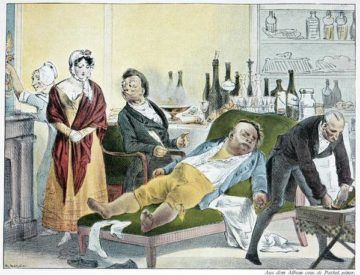by Godfrey Onime

I am reminded of an observation made by an African comedian at a wedding reception I once attended in Atlanta. He quipped that the English language tends to identify even the most hideous diseases by the most beautiful names. Names so lyrical, so poetic, so sensuous you almost wish to contract the disease. He rattled off some examples: Hepatitis. Cholecystitis. Syphilis. Cancer. “How beautiful!” he exclaimed.
The jokester contrasted this proclivity with some gruesome names Africans assign to even the most benign conditions, such as with the Yorubas of Nigeria — Lapalapa (for dermatitis); or jedijedi (for diarrhea). The comedian may romanticize the English names for diseases, but not so with most of my patients. Especially not so with the middle-aged woman whom I diagnosed with syphilis a few years back. “You mean my nose could fall off?” seemed to be her biggest fear, explaining that she once heard that syphilis could destroy the “snout,” as she put it.
I scrutinized the woman, taking in her straight nose and high cheekbones. Giggling, I said, “Maybe you get to go back in time and join the ‘No Nose Club’. Perhaps you could find out who Mr. Crumpton really was.”
“Mr. who?”
###
Beautiful or not, it turns out that the origin of the name for syphilis, ironically, came from a poem, written by Girolamo Fracastoro, an Italian physician, scholar and poet. The poem, Syphilis sive morbus gallicus (translated to Syphilis or The French Disease), tells the story of a shepherd boy named Syphilis who angered the Greek god Apollo and was given the disease bearing his name as punishment. Although the affliction was more colloquially called “The Pox,” the term syphilis stuck as the proper name. Read more »
